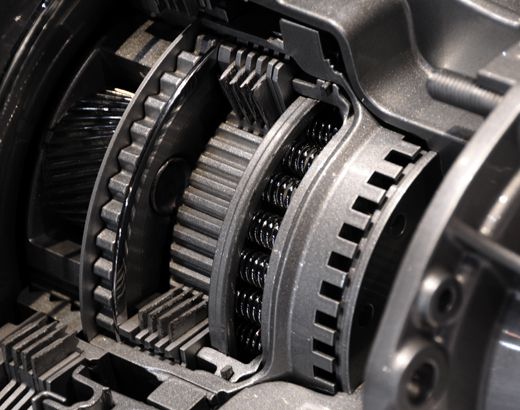Clutch Adjustment and Replacement: The clutch works by using a system of plates to connect the power of the engine to the transmission and the wheels. When the plates are engaged, the friction pressing against the plates connects the engine to the transmission. When the plates are disengaged, the friction disappears as the plates pull away and the power from the engine is no longer connected to the transmission. This process allows the vehicle to switch gears. Unfortunately, this process slowly wears away the friction material on a clutch plate which means it will eventually have to be replaced. If the clutch pads aren't too worn, a clutch adjustment can help with the issue of “gear slipping” which we explained above. However, more serious issues can only be resolved by replacing the clutch pads entirely. We offer both services here at Scott's and we are more than happy to help you figure out which service best addresses the needs of your vehicle.



